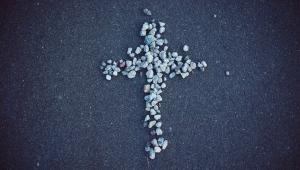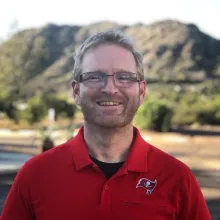Persevering in Reconciliation in the Face of Racism

I want to tell you about one of my most painful experiences with racism.
Three years ago, I was an InterVarsity staff director for a growing ministry in South Florida. On one of our community college campuses, we had seen the InterVarsity ministry grow from 12 to 70 students, almost all of them Haitian.
Students were being helped with their physical and financial needs. People were experiencing new life in Christ. New leaders were taking risks for Jesus and his mission. I felt so privileged to be a part of what God was doing.
Then I received an email. The entire student leadership team had decided to disaffiliate from InterVarsity. They didn’t feel that someone who looked like me—pale skin and blond hair—could lead them to where God wanted them to go.
I was in California for InterVarsity’s Multiethnic Staff Conference at the time, surrounded by friends who loved me. But I was so stunned that I could barely talk about what had just happened.
The students hurt me. I felt rejected and embarrassed. The situation was complex, however, and I shared their commitment to seeing a thriving witnessing community on their campus. I prayed for them and blessed them and moved on.
But I carried something with me.
Deep in my heart, a seed of racism found soil. Watered by the pain and rejection and embarrassment, it grew and grew and grew. Before I knew it, I found myself only eager to spend time on campuses that had lots of students who shared my ethnic heritage (I’m Latino and White). My shoulders tightened when I saw a Haitian surname in my inbox or on my caller ID. I started to withdraw from my Haitian friends.
What was happening to me?
I was an outspoken advocate for multiethnicity and racial reconciliation. I preached that God’s power was most strongly displayed when Jesus tore down the walls of hostility between ethnic groups. But here I was, hunkering down next to a growing wall between me and my Haitian students and friends, hoping that wall would protect me.
We live in an age when people can talk boldly about “racism without racists.” Systemic issues of racial injustice are garnering more and more attention. In many Christian circles, people are rejecting the dysfunctional categories of “race” altogether and exploring the deep, rich, biblical theology that surrounds “ethnicity.”
Where does all that leave me: a person who discovers racism in his heart?
I felt tremendous shame. I struggled for weeks and months on my own, chastising myself every time a racist thought would spring to my mind. I tried harder and harder. But racism is a persistent weed. Our attempts to eradicate it on our own are often inadequate.
Over the summer, I opened up to a close friend. I shared with him what was going on and told him I needed help. He prayed with me and agreed to walk with me through this. I couldn’t have made it through this season without his support. Racism is a monster that can’t be fought alone.
Looking back, I can see several things my friend and I did together that helped me turn from my racist attitudes and return to healthy relationships with my Haitian friends, students, and coworkers.
First, we worked on forgiveness. My hurt, embarrassment, and experience of rejection may have caused my racism, but they didn’t excuse it. I’ve been accepted and loved by Jesus—the same Jesus who accepts and loves my Haitian brothers and sisters.
If you’re experiencing racism—either in your own heart or from others—you have to do the hard work of forgiveness. Forgiveness fights racism and fuels reconciliation. Perhaps this is why Jesus urged his disciples over and over again to forgive.
Second, we stayed vulnerable. My friend helped me find places to serve, depend on, and grow in trust for my Haitian brothers and sisters. I submitted myself to them. And God used these interactions to change what was happening in my heart.
Racism always pushes us to defensiveness and self-protection. But Jesus’ wall-of-hostility-destroying death and resurrection make it possible for us to make the vulnerable move of serving those who have mistreated us and against whom we hold bias. When we do this, we declare with our actions that no experience of racism—in our heart or in the world—will carry more weight with us than the One who has called us to the ministry of reconciliation. He will preserve me; therefore, I can persevere.
Last, we spent a lot of time in prayer. We asked Jesus to change my heart. We asked God to guide my actions. We asked for help to forgive and heal and serve and take risks. When I couldn’t bring myself to pray, my friend prayed for me. And God was faithful.
As the summer ended, I found myself in a different emotional and spiritual place. The wounds were healed, though the scars remained.
I wish I could say now, “I once carried racial bias but no longer do.” However, from time to time those weeds of racism threaten to return; my heart has learned to respond to pain, embarrassment, and rejection with racism. But I know that “God is greater than my heart” (1 John 3:20). He will be faithful. He will give me courage to be vulnerable. He will help me forgive.
And most importantly, God will continue to give me friends to walk with me as I heal, stumble, and love.
For more on racial reconciliation, check out these resources:
Why We Can Hope for True Racial Reconciliation
Speaking of Racial Reconciliation
The Heart of Racial Justice: How Soul Change Leads to Social Change




